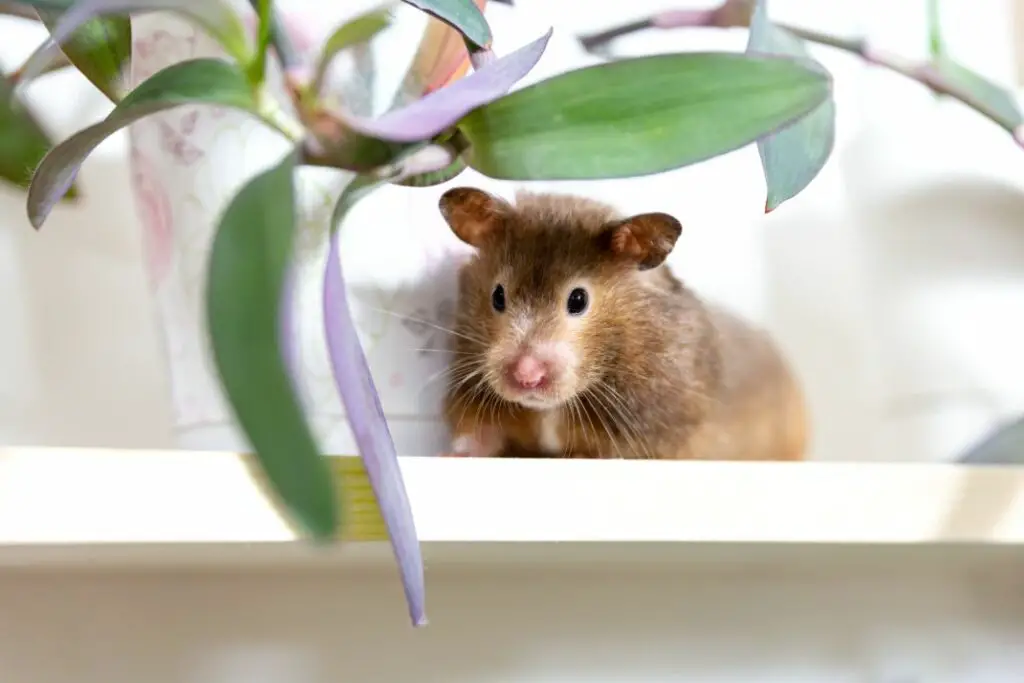Hamsters are small, furry creatures that make great pets. They are known for being cute, curious, and playful. However, sometimes hamsters can seem aloof or even unfriendly.
If you’re a hamster owner who is wondering why your hamster seems to hate you, it’s important to understand hamster behavior.

Natural hamster behavior
Hamster Temperament
Hamsters are naturally shy animals, and some hamsters are more social than others. Some hamsters are more active during the day, while others are more active at night. Additionally, some hamsters are more independent, while others crave attention and interaction.
Body Language and Gestures
Hamsters communicate using body language and gestures. Hamsters may show aggression, fear, or contentment through their body language. For example, a hamster may arch their back and puff up their fur when feeling threatened, or they may flatten their ears and close their eyes when feeling relaxed.
learning to read your hamster’s body language is essential in understanding them better.
Possible Reasons Why Your Hamster Hates You
If your hamster seems to dislike you, it’s important to identify the reason why. Here are a few things to consider:
Lack of Trust
Hamsters are prey animals, which means that they are naturally cautious and wary of their surroundings. If your hamster doesn’t trust you, they may be more likely to hide or avoid you.
Fear or Anxiety
If your hamster is afraid or anxious, they may be more likely to bite or act aggressively. Fear or anxiety can be caused by a variety of factors, such as a stressful environment or a lack of socialization.
Hamsters may be scared of their owners if they feel threatened or if they haven’t been handled properly. If your hamster is afraid of you, try approaching them slowly and offering them a treat. Be patient and gentle, and don’t force them to interact with you.
Stressful Environment
If your hamster is living in a stressful environment, they may be more likely to act unfriendly. A stressful environment can include things like loud noises, bright lights, or a lack of hiding places.
Trauma
Hamsters that have experienced trauma may be more difficult to handle and may act aggressively towards their owners. If you suspect that your hamster has been traumatized, it’s important to approach them gently and give them time to adjust to their new surroundings.
Pain or Discomfort
If your hamster is experiencing pain or discomfort, they may lash out in aggression. Check for any signs of injury or illness, and take your hamster to the vet if necessary. If your hamster is in good health but still seems to dislike you, it’s possible that they may have experienced trauma.
Building a Stronger Bond with Your Hamster
If you want to build a stronger bond with your hamster and make them like you more, there are several things you can do.
Creating a Comfortable Habitat
Make sure that your hamster’s habitat is comfortable and stress-free. This means providing plenty of hiding places, toys, and a comfortable sleeping area. Additionally, make sure that your hamster’s habitat is kept clean and free of unpleasant odors.
Positive Reinforcement Training
Positive reinforcement training can be a great way to build a stronger bond with your hamster. This involves rewarding your hamster for positive behaviors, such as coming when called or interacting with you.
Spending More Time and Attention with Your Hamster
If you want to build a stronger bond with your hamster, it’s important to spend time with them every day. This can include playing with them, providing them with treats, or simply spending time in the same room as them.
How Do You Train Your Hamster to Behave Better?
Training your hamster to behave better takes time and patience. Start by teaching them basic commands or tricks. Reward them with treats when they follow your commands, and be consistent with your training. Over time, your hamster will learn to associate your commands with positive experiences and will be more likely to behave well.
Conclusion
If your hamster seems to hate you, it’s important to remember that hamsters are naturally shy and cautious animals. Hamsters do no not have the capacity for hate, but they do have reactions to past experiences because they have a decent memory.
By understanding hamster behavior and taking steps to build a stronger bond with your pet, you can improve your relationship with your hamster and create a happy and healthy home for your furry friend.
If you’re concerned about your hamster’s behavior or health, don’t hesitate to seek professional help. With a little patience and care, you and your hamster can build a strong and loving bond that will last a lifetime.
- How Long Do American Eskimo Dogs Live? Important Factors and Care Tips - September 29, 2023
- Do American Bulldogs Need Grooming? Essential Tips and Care Guidelines - September 29, 2023
- Do Bengal Cats Enjoy Playing? Essential Tips for Keeping Them Active - September 29, 2023